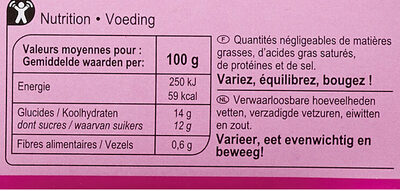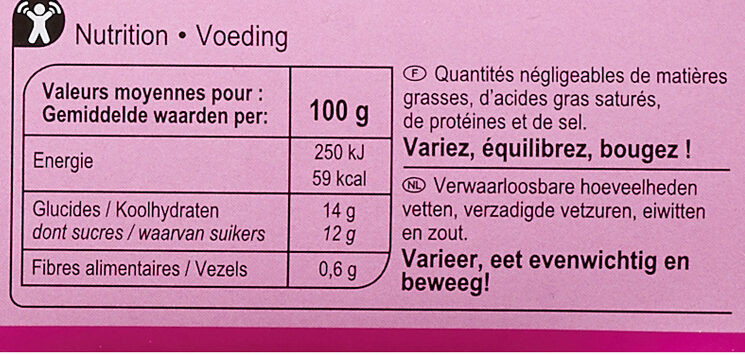Ananas au jus d'ananas - Carrefour - 675 g
Some of the data for this product has been provided directly by the manufacturer Carrefour.
Barcode: 3560070043699 (EAN / EAN-13)
Common name: Ananas en tranches au jus d'ananas
Quantity: 675 g
Brands: Carrefour
Categories: Plant-based foods and beverages, Plant-based foods, Canned foods, Canned plant-based foods, Canned fruits, Canned pineapples
Labels, certifications, awards:
Green Dot, Triman

Origin of the product and/or its ingredients: Ce produit est fabriqué au Kenya à partir d'ananas cultivés au KenyaCe produit est fabriqué au Kenya à partir d'ananas cultivés au Kenya.
Origin of ingredients: Africa, Kenya
Producer: Importé d'Indonésie par EMB 75117Z pour Interdis. Importé du Kenya par GOLDEN FOODS, S.A. RGSEAA 21.08687/MU
Manufacturing or processing places: Kenya, Afrique
Traceability code: EMB 75117Z - Paris 17e Arrondissement (Paris, France)
Stores: Carrefour, carrefour.fr
Matching with your preferences
Other information
Other information: En tranches
Conservation conditions: A conserver dans un endroit frais et sec. Après ouverture, à conserver au réfrigérateur dans un récipient alimentaire non métallique fermé et à consommer dans les 48 heures. Pour une dégustation optimale, à consommer de préférence avant le / N° de lot : voir sous l'étui. (pour le cluster). Voir sur l'un des fonds de la boite (pour la boite)
Customer service: Interdis - TSA 91431 - 91343 MASSY Cedex - France
Report a problem
Data sources
Product added on by openfoodfacts-contributors
Last edit of product page on by org-carrefour.
Product page also edited by beniben, carrefour, driveoff, ecoscore-impact-estimator, kiliweb, mbe, packbot, quechoisir, sebleouf, segundo, thaialagata, yuka.Vm9JT09iNENpUElMeGRnbHd6bjgwZjFhbWFHM2UzNktBUHBJSUE9PQ.












